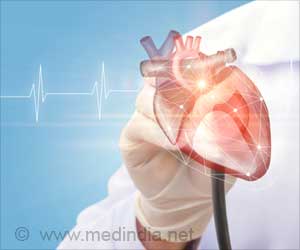Eliminating or reducing trans fats from the diet is a harm reduction strategy to prevent potential health complications such as heart problems.

‘Like saturated fats, trans fats elevate the LDL-cholesterol levels in the blood. Protective HDL levels come down, thereby increasing inflammation and blood clot formation inside the arteries.’





Speaking about this, Padma Shri Awardee, Dr KK Aggarwal, President, HCFI, said, “A majority of the population continues to consume trans fats in some form without understanding the potential health complications it can lead to. Trans fats increase the shelf life of packaged foods, and restaurants like to use it as oil for deep frying because it doesn’t need to be changed as often as other oils. Trans fats are created by pumping hydrogen molecules into vegetable oils. This changes the chemical structure of the oil, turning it from a liquid into a solid. The process involves high pressure, hydrogen gas, and a metal catalyst – and the end-product is highly unsuitable for human consumption. They boost LDL as much as saturated fats do. They also lower protective HDL, rev up inflammation and increase the tendency for blood clots to form inside blood vessels.” Most commercially catered food prepared from trans fats are tasty and often people overeat by at least 500 calories because of the taste provided by the hydrogenated oils.
Adding further, Dr Rajiv Khosla Sr Gastroenterologist, said, “Foods rich in trans fats tend to be high in added sugar and calories. Over time, these can pave way for weight gain and even Type 2 diabetes. The phrase ‘partially hydrogenated’ on the list of packaged food is an indication of the presence of trans fat and should clearly be avoided or reduced.”
Some recommendations
• Choose foods lower in saturated fats, trans fats and cholesterol.
Advertisement
• Choose vegetable oils (except coconut and palm kernel oils) and soft margarine (liquid, tub, or spray) more often because the combined amount of saturated and trans fats is lower than the amount in solid shortenings, hard margarine, and animal fats, including butter.
• Limit foods high in cholesterol such as liver and other organ meats, egg yolks and full–fat dairy products, like whole milk.
• Choose foods low in saturated fat such as fat-free or 1% dairy products, lean meats, fish, skinless poultry, whole grain foods and fruit and vegetables.
Source-Medindia















